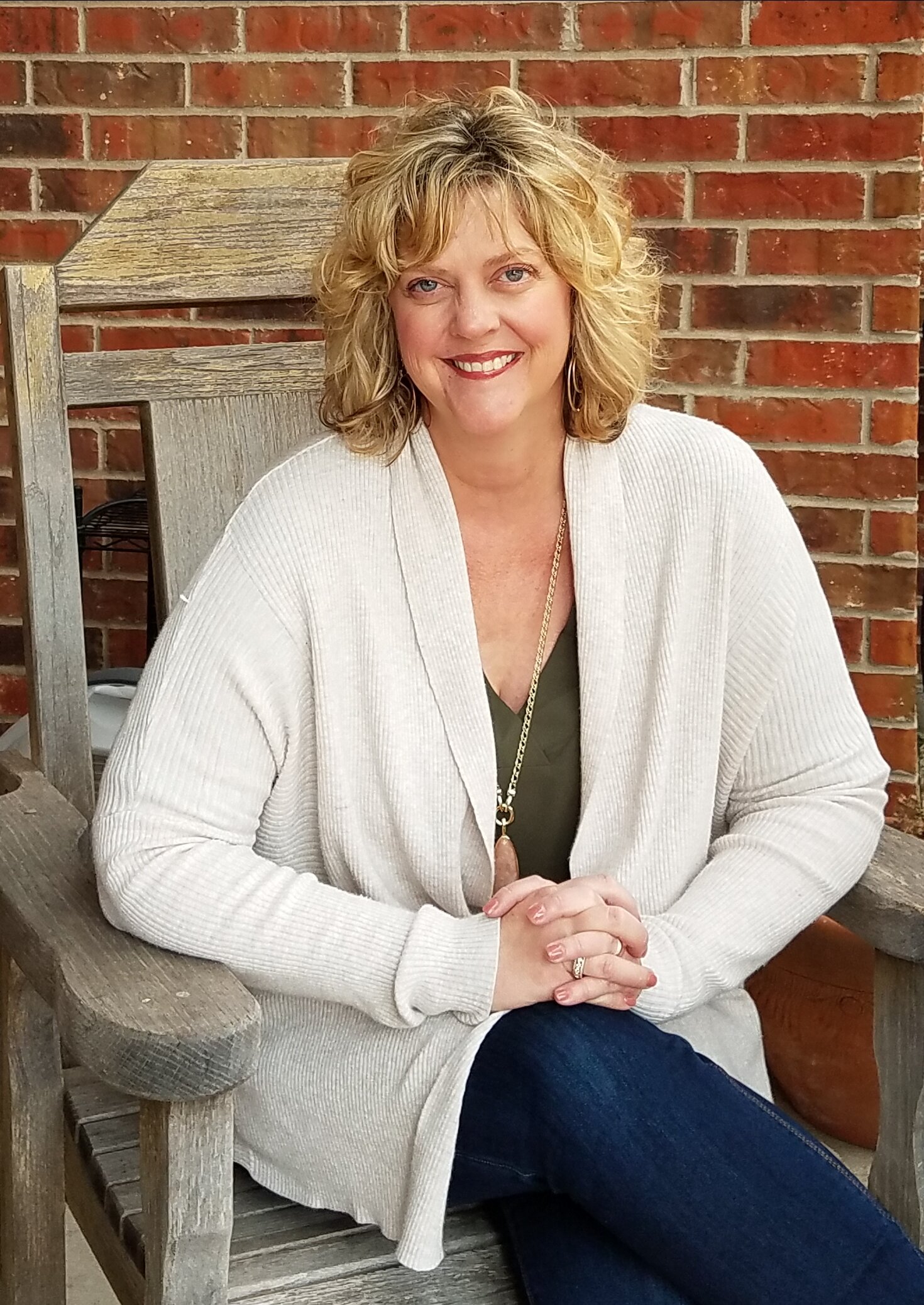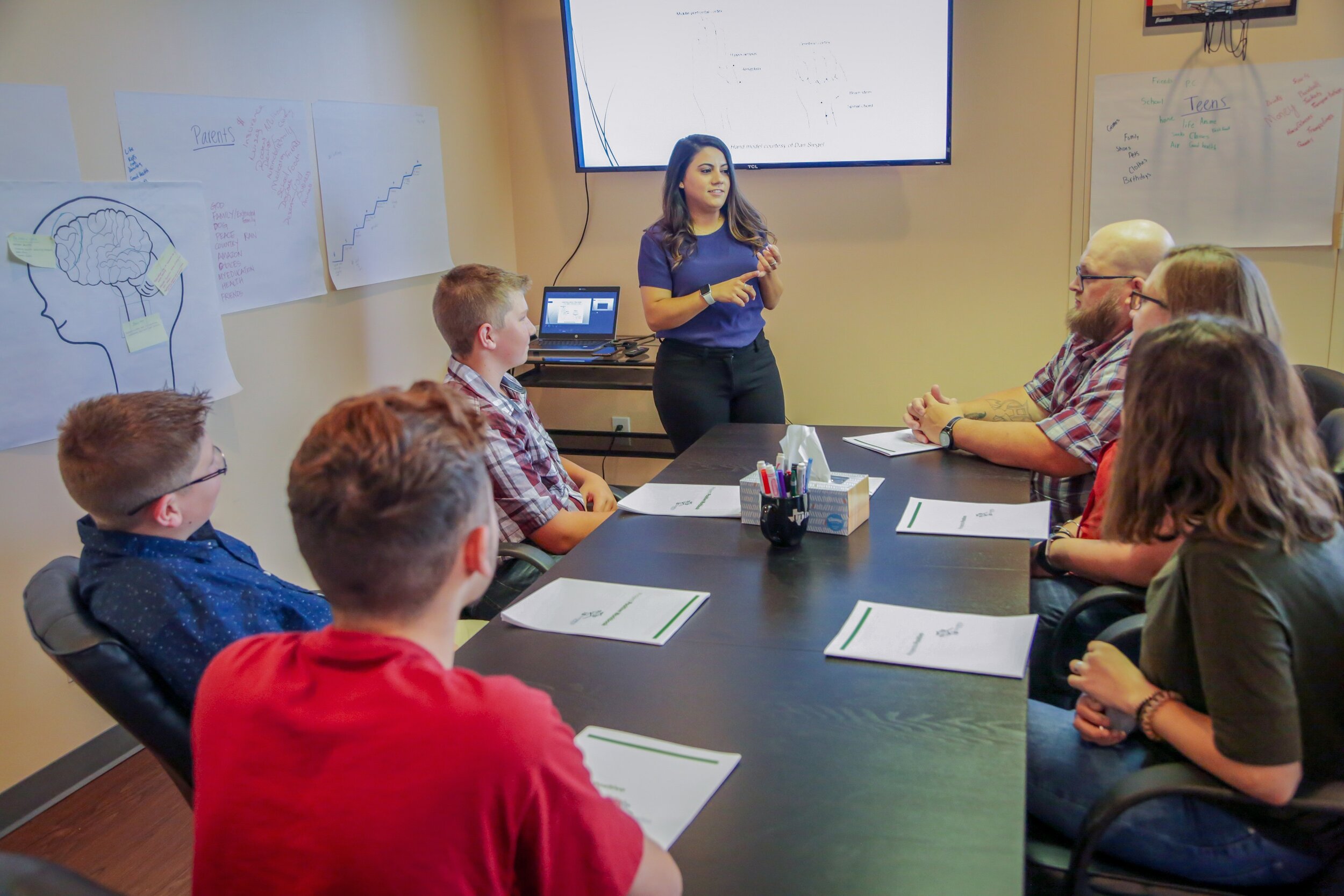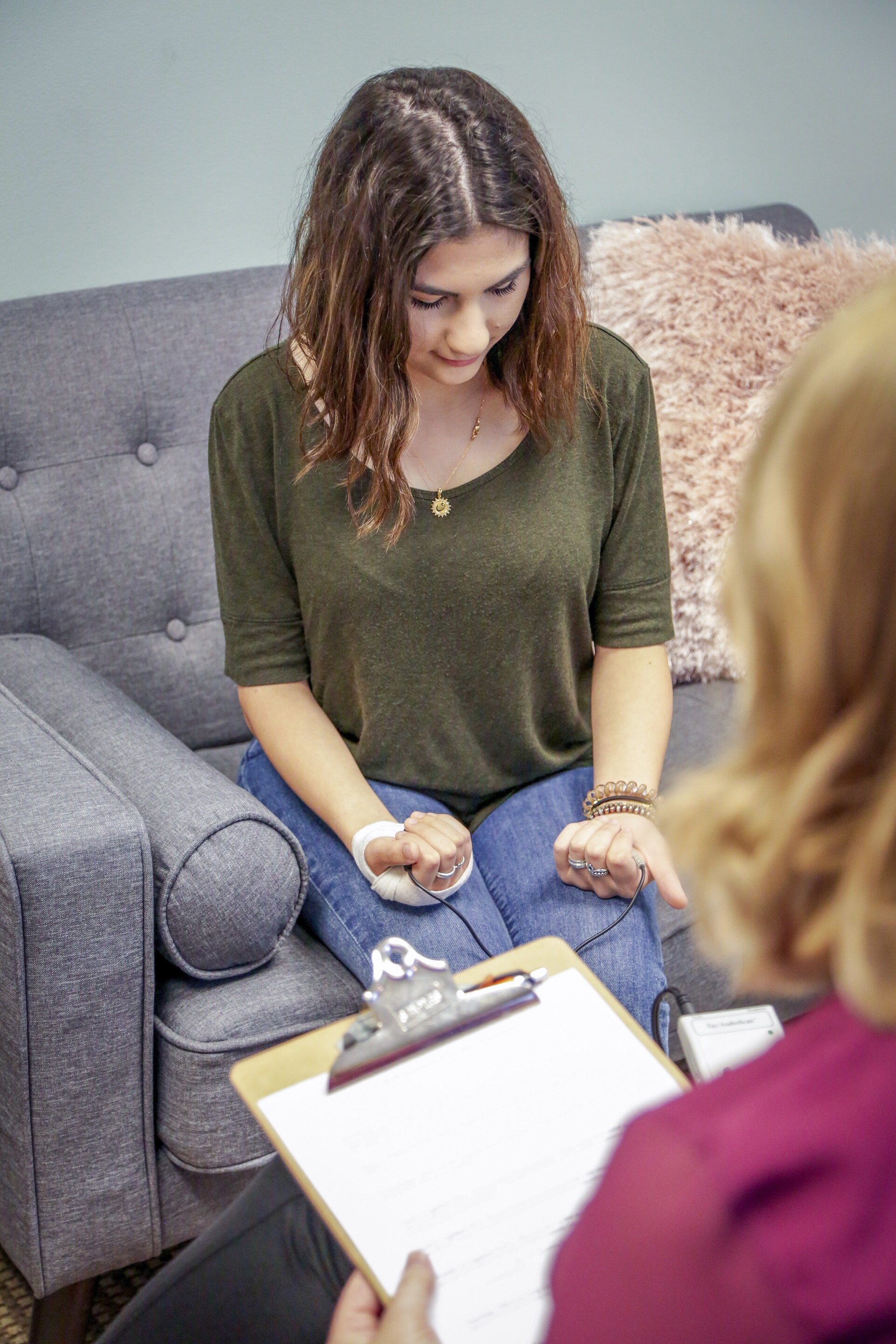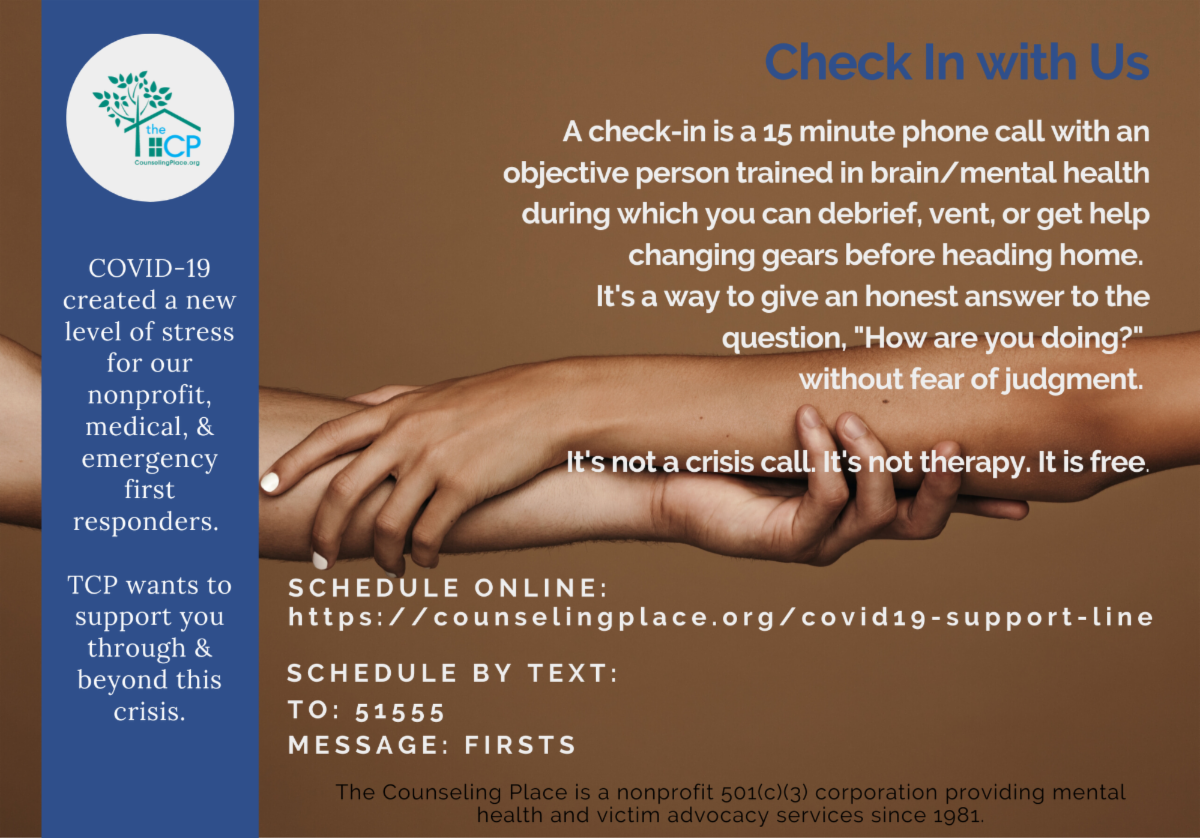Interview by Jan Osborn. Photos courtesy of The Counseling Place.
May is Mental Health Awareness Month. At Dallas Doing Good, we are working to inform people of services available in our community for those who are needing help. We visited with Deborah Dobbs, Executive Director of The Counseling Place in Richardson. Deborah says, “It is no secret that America has a critical shortage of affordable mental health services, and this predates the pandemic. It is absolutely devastating when people have mustered the courage to seek assistance and fought a widespread stigma of mental illness and are turned away because services are too scarce.” Below, Deborah shares about her work at The Counseling Place and answers a few questions about herself and the how the current pandemic crisis is impacting mental health in our community.
The Counseling Place was established in 1979 as the first nonprofit mental health agency in Richardson. It provides affordable professional counseling and education services on a sliding scale (or free) to all ages and income levels in North Texas. It also provides a victims’ assistance program through formal contracts with the Richardson and Sachse Police Departments and provides therapy for crime victims referred by any jurisdiction. Additionally, The Counseling Place collaborates with other nonprofits to provide mental health services to their clients and support services to their staff members.

Deborah W. Dobbs, M.A., Executive Director, The Counseling Place
How did you first learn about The Counseling Place, and how long have you been working with them?
My mother introduced me to The Counseling Place in 1996. She was a volunteer at that time. My educational background was in sociology with an emphasis on studies in criminology and deviant behavior. However, I became more interested in the impact crime and trauma had on individuals, so joining The Counseling Place as a victim advocate was a natural move for me. I have been with The Counseling Place for 24 years. I spent my first 13 years as a victim advocate and developing the victims’ assistance program.
I’ve served as executive director for the past ten years.
How many people do you serve at The Counseling Place?
In 2019 The Counseling Place provided individual and family counseling to 555 new clients; served 226 children and teens from all over the DFW area through its psychoeducation groups; and provided victims’ assistance services to over 1,600 people throughout the metroplex. These are extraordinary numbers when you consider the frequency and longevity of the services each client receives. The demand exceeds the agency’s capacity to serve.
Resources for Mental Health services were stretched thin before COVID-19. Can you share some statistics and tell us how your services have changed during COVID-19?

Youth Programs Director Lorjon Al leads a Project Positive Group for teens and parents.
We’ve continued services, but all services are being provided by phone or video. These services include individual therapy and our psychoeducational courses, such as Project Positive (a social emotional learning course ideal for middle school tweens and teens). Many teens and tweens are struggling more than they’re letting on, and we’ve found that the content in our Project Positive course has been incredibly helpful to them. We continue to provide therapy to children as young as 8 years old. For kids younger than 8, parent consults are available. We’ve also added a support line for first responders, which includes professionals in the nonprofit and medical fields. They might not feel a need for weekly therapy sessions or have the time or energy for it, but they do have the time and energy to check in over the phone with an objective person who is trained in mental health. A 15-minute phone call to debrief and review self-care strategies can be of tremendous help to our helpers on the front line of this pandemic.
According to a 2020 Pre-COVID-19 Mental Health America (MHA) annual State of Mental Health Report, which ranked all 50 states and the District of Columbia based on several mental health and access measures, over 45 million Americans—almost 20%—are experiencing a mental illness; over 10.3 million adults have serious thoughts of suicide in the United States—an increase of nearly 450,000 people from last year’s data set; and 57 percent of adults with a mental illness receive no treatment.
North Texas experiences mental health struggles, too. We have the same risk factors as others in our nation. Affordable mental health services, however, are scarce. Over the last few years, The CP has been impacted by the closure of three nonprofit mental health agencies. The CP attempted to fill the gap while managing existing significant increases in referrals due to suicide and attempted suicide, as much as 30 percent per year.
What are some of the serious mental health challenges you are seeing that are caused by the current pandemic?

EMDR is a modality of therapy that tends to expedite healing from trauma with less suffering. It involves bilateral stimulation of the brain. All clinicians at The Counseling Place are trained in EMDR.
With the onset of COVID-19, more people are experiencing anxiety, depression, and emotional exhaustion, exacerbated by uncertain employment and isolation. Our current situation is making existing mental health problems more complex and creating new ones. Responses to COVID-19 have introduced risk factors, drastically elevating the need for mental health services now and in the future.
Confinement and lack of mobility with no clear end in sight challenge nearly everyone’s coping skills. People who were recovering from trauma may have their progress thwarted by these circumstances because their focus has shifted. Think of Maslow’s Hierarchy of Needs. People are focused on meeting their basic needs. Healing strategies, like grounding and mindfulness, can take a back seat to having enough food and keeping a roof over one’s head. Consequently, they are experiencing huge setbacks in their progress.
What is your biggest concern during this time of social isolation?
It’s difficult to rank my concerns because so many come to mind. I’m concerned about people who are grieving and being denied access to their social support networks. I’m concerned about elderly members of our community whose routines and human connections have been disrupted. Grandparents desperately miss their grandchildren. Many cannot visit their spouses in nursing homes. Being cut off from loved ones isn’t natural or healthy. Another huge concern is an increase in self-inflicted and interpersonal violence. We’re seeing more people using alcohol or other drugs to cope, which can worsen symptoms of depression, increase impulsivity, and can cause people to lose tempers more easily and become destructive toward relationships. The Counseling Place’s referrals related to suicides and assaults tripled in two months, and domestic violence referrals increased 30 percent. We’re expecting a surge in requests for services from new victims of domestic violence once we have more freedom to move around again. During COVID-19 we have been providing services by phone or video. However, the technology is difficult for some of our elderly to navigate. Telehealth is not an option for many victims of domestic violence. We fear for their safety, and we are bracing ourselves for the aftermath of this COVID culture. We need to prepare for a surge in requests for services.
Tell us about your new “Check-In” service created since COVID-19 to support nonprofit workers on the front lines as well as law enforcement officers, 911 operators, and medical professionals. Why is this so important and how does it work?
Our healthcare providers and first responders on the front lines are accustomed to high stress working environments, but this virus has placed them in unimaginable conditions. They worry about exposing their family members to, and even dying from, the virus. Helping the helpers has always been an important area of focus at The Counseling Place. Our specialized counseling services for first responders increased after the 2019 Dallas area tornadoes, and The Counseling Place launched self-care groups for front-line responders in nonprofit agencies. Immediately after the tornadoes struck, Cindy Shafer, a forward-thinking leader and executive director of The Network of Community Ministries, reached out to us for help for their staff serving on the front lines, and we later received a grant from Communities Foundation of Texas to support and expand these services to other nonprofit agencies.
>
“We provide professional counseling services to first responders and their families, and we charge whatever they can afford to pay. With COVID-19, we’ve expanded “first responders” to include medical professionals and nonprofit workers on the front lines.”
With COVID-19’s unique demands, we needed to get creative, so we launched a new service, and we’re getting a wonderful response to it. It’s a free “Check-In” service to support nonprofit workers on the front lines as well as law enforcement officers, 911 operators, and medical professionals. Initiated with a simple text, individuals can sign up for a time to check in with someone for a 15-minute phone conversation. That person asks how they are doing and gives them a chance to switch gears and discuss what happened during the day without fear of judgment – all before they head home. The service is free and confidential. To schedule, text FIRSTS to 51555 or click here.
At The Counseling Place, we know it is critical to help the helpers, and additional funding enables us to expand this service. We must continue to come up with innovative ways such as this to help those affected by this pandemic.
What are some important warning signs to watch for if you think your friend or loved one is suffering with mental illness, or even contemplating suicide?
There is not one cause of suicide. Often it results from a convergence of stressors and feelings of hopelessness where no other solution seems viable. Risk factors typically relate to our health, environment, and history. Our current situation increases vulnerability to suicide, particularly for people who already experience risk factors, such as depression, PTSD or other disorders, traumatic brain injury, and even chronic pain. It is important to be aware of risk factors that impact you or loved ones and continue or seek mental health treatment.
Some warning signs of suicide include: talk of suicide, feeling hopeless, feeling like a burden or experiencing unbearable pain; increased use of substances, like alcohol or other drugs; isolating from loved ones, calling people to say goodbye; giving away possessions; loss of interest in activities or life in general; irritability; shame; and sudden improvement, which is perhaps the most confusing for loved ones grieving loss due to suicide. Keep in mind that these are alerts or alarm bells, and this is not an exhaustive list.

Watson, the therapy-dog-in-training
What are risk factors and warning signs of elevated anxiety?
We are seeing an understandable and expected increase in anxiety brought on by our COVID culture.
Some risk factors include trauma, stress due to an illness, an accumulation of stress, family history of anxiety, and substance abuse.
Some warning signs include fatigue, which can be manifested a variety of ways, like decreased hygiene or wanting to sleep all day, irritability, difficulty sleeping, loss of appetite, trouble concentrating, feeling nervous, restless or tense, and gastrointestinal problems.
How can we work to combat anxiety during this extended time of stress?
The psycho-social impact of COVID-19 is pervasive, powerful and should not be underestimated. Our mental health determines how we respond and adjust. It is important to move your body, utilize grounding techniques, avoid using alcohol and drugs to cope, have a routine, and schedule time to connect with someone, if possible, by video. Visual connection is important. Hearing another’s voice is great, but it is even better to see the person if our interactions use sight as well as sound. Scheduling these interactions gives us something to look forward to. Finally, be proactive with your mental health and continue or seek mental health treatment. A therapist is like a personal trainer for brain fitness.
For The Counseling Place, we have a long road ahead as we anticipate an overwhelming number of trauma and grief clients. Many cases of the blues will turn into depression, more people will need to grieve after suicide, and even natural expected deaths are taking a greater toll because we are denied the ability to mourn within our traditions. To meet the demand for services, we need to grow our team. Funding will determine if and how we can do that. We also predict continuing our telehealth services and continuing some remote work. It’s imperative that we take care of our own helpers, and COVID-19 has helped us identify ways to do more of that.
How can the community help you to meet the skyrocketing need for mental health services?
It is important to be attentive and mindful of those around you. Watch for important signs that there are problems and encourage them to seek help as needed. Call us at 469-283-0340 or visit counselingplace.org.
The pandemic is going to put a strain on all counseling organizations and their ability to meet the increasing demand. One way to help is to give to The Counseling Place on our website at counselingplace.org/givetoday.

If you or someone you know is experiencing a mental health crisis or suicidal thoughts, please dial 1-800-273-8255 for the National Suicide Prevention Lifeline. For help finding a mental health resource, call the Here for Texas Mental Health Navigation Line at 972-525-8181.